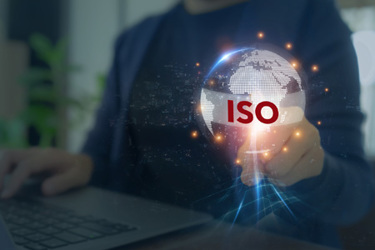6 Benefits Of ISO 27001 Compliance
By Carl Shallow, Integrity360

Organizations are increasingly waking up to the benefits that achieving ISO 27001 compliance can bring.
Launching in October 2005, ISO 27001 quickly became recognized as the international standard for Information Security Management Systems (ISMS), assisting organizations of all shapes and sizes in implementing and maintaining an ISMS to protect their IT infrastructure and data.
Today, certification can be achieved in as many as 165 member countries, setting a global benchmark for best practices. Not only does it demonstrate an enterprise’s commitment to best information security practices and offer a competitive edge to companies by assuring their stakeholders, but it also allows firms to limit risks, damages, disruption, and costs in the face of breaches.
Here, we explore six key benefits of ISO 27001 compliance in more detail.
- More effective information security
ISO 27001-compliant companies become empowered to identify gaps and potential areas of vulnerability and, in turn, implement appropriate controls to effectively manage, mitigate and remediate those risks. With these controls, firms become better placed to detect breaches and prevent attacks, while also ensuring that any associated disruption or impact on the business is minimized. - Confidence and competitive advantages
Compliance instills confidence among clients and other stakeholders, helping to build trust and provide peace of mind that any confidential or sensitive commercial data that has been shared is secure. Certification signifies that a robust approach to security is in place, providing an organization with a competitive advantage and increasing commercial opportunities. - Avoidance of regulatory penalties
Organizations today are having to navigate an increasing number of complex laws and regulations surrounding data protection and information security, from GDPR to the Data Protection Act. For those enterprises that aren’t compliant, breaches bring with them the threat of regulatory penalties including fines or even potential prosecution. With ISO 27001, organizations are well placed to align with these growing legal and regulatory requirements. - Greater clarity and productivity
ISO 27001 demands the creation of one comprehensive set of security metrics across all processes, business functions, and locations – a clear outline of policies and objectives that adds certainty. Accountability is ensured and operations are streamlined thanks to defined responsibilities, delivering efficiencies by eliminating duplicated effort. Further, it ensures a comprehensive disaster recovery plan and that business continuity procedures are established which serve to limit downtime and minimize service disruption in the event of a breach. - Improved security awareness
ISO certification requires collective efforts across the organization that improve security awareness, bringing best practices into sharper focus. The benefits of this are immense. If staff are conscious of security in all aspects of their day-to-day tasks, they will be much more likely to spot suspicious activities such as phishing emails. With IBM estimating that 95% of cyber security breaches result from human error, the importance of widespread education and awareness cannot be understated. - Establishing continuous improvement efforts
Finally, certification can set in motion a culture of continuous improvement. Ongoing performance evaluations are required as the threat landscape evolves, with more sophisticated threats and new regulatory requirements coming to the fore. To remain compliant, organizations need to continually review and improve their practices, thus helping to address new risks and continually bolster the security posture.
Remove The Burdens Of Realignment
Organizations will soon be required to adjust their ISMS and associated security protocols as ISO 27001:2022 – the newest version of ISO 27001 – comes into play.
Firms will have three years to align with this latest iteration which was initially published in October 2022 and aims to provide a more straightforward structure to manage broader risk profiles more effectively.
Not only will ISO 27001:2022 help to guide best practices about information security, but it also will look to cover some of the technical aspects of physical security, asset management, cybersecurity, and the human resource security elements that come with privacy protection.
For some organizations, adapting to or aligning with ISO 27001:2022 may feel like a daunting and/or tedious task that will require significant efforts, distracting staff from other responsibilities. But it doesn’t have to.
Indeed, much of the heavy lifting in relation to certification can be outsourced. By working with a qualified consultant, firms can remove much of the burden from their internal departments flexibly and cost-effectively.
ISO 27001 compliance consultancy or MSP can come in many packages that neatly fit an organization’s specific needs. It can either be holistic and comprehensive, or more specialized and focused on finer details such as a gap analysis, risk assessment, or the development of key frameworks.
Without question, working with qualified experts is a straightforward and effective way to gain peace of mind in achieving compliance, helping entities to take the stress and difficulties out of navigating this critical transitional period.
About The Author
Carl Shallow is Director of Cyber Risk & Assurance at Integrity360.
